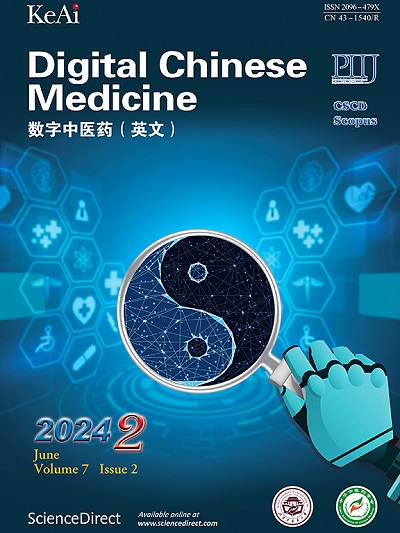Clinical research report on Chinese patent medicines and classic traditional Chinese medicine prescriptions (2023)
Q3 Medicine
引用次数: 0
Abstract
Objective
Randomized controlled trials (RCTs) of Chinese patent medicines and classic traditional Chinese medicine prescriptions were systematically reviewed from both Chinese and English journals published in 2023. A preliminary summary and evaluation were conducted on the generation and translation of clinical evidence for these treatments. This analysis aims to inform future research on clinical efficacy evaluation and guide the rational application of evidence.
Methods
RCTs of Chinese patent medicines and classic traditional Chinese prescriptions published in 2023 were comprehensively retrieved from the Artificial Intelligence Clinical Evidence Database for Chinese Patent Medicine (AICED-CPM), with supplementary searches conducted in China National Knowledge Infrastructure (CNKI), Wanfang Data, Chinese Science and Technology Journal Database (VIP), Chinese Biomedical Literature Database (SinoMed), Cochrane Library, PubMed, Embase, and Web of Science. The study characteristics and methodological quality of these RCTs were systematically analyzed and evaluated.
Results
A total of 1 443 RCTs of Chinese patent medicines were included, comprising 1 399 Chinese articles and 44 English articles. Additionally, 334 RCTs of classic traditional Chinese medicine prescriptions were found, with 331 published in Chinese and 3 in English. 196 567 participants were included, covering 585 types of Chinese patent medicines (487 oral, 61 injectable, and 37 topical) and 179 classic traditional Chinese medicine prescriptions. The involved studies encompassed 22 types of diseases, with research primarily focusing on diseases of the circulatory system, the respiratory system, and the genitourinary system. The sample sizes ranged from 18 to 3 777 participants, and most studies were conducted at a single center. Methodologically, the implementation of allocation concealment and blinding remained insufficiently emphasized.
Conclusion
Overall, compared with 2022, both the number of RCT publications and their methodological quality have improved in 2023, with heightened attention to research on diseases of the genitourinary system. However, quality control and standardized management in the design and implementation processes still require enhancement to produce more high-quality clinical evidence and accelerate the translation and application of this evidence.
中成药与中药经典方剂临床研究报告(2023年)
目的对2023年发表的中英文期刊中成药和中药经典方剂的随机对照试验(rct)进行系统回顾。对这些治疗的临床证据的生成和转化进行了初步的总结和评价。本分析旨在为今后临床疗效评价的研究提供参考,指导证据的合理应用。方法综合检索中国中成药人工智能临床证据数据库(AICED-CPM)中2023年发表的中成药和中药经典方剂的srct,并辅以中国知网(CNKI)、万方数据、中国科技期刊数据库(VIP)、中国生物医学文献数据库(SinoMed)、Cochrane图书馆、PubMed、Embase和Web of Science。对这些随机对照试验的研究特点和方法学质量进行系统分析和评价。结果共纳入中成药rct 1 443篇,其中中文文献1 399篇,英文文献44篇。共纳入中药经典方剂rct 334项,其中中文发表方剂331项,英文发表方剂3项,共纳入受试者19567人,涵盖585种中成药(口服487种,注射61种,外用37种)和179种中药经典方剂。所涉及的研究包括22种疾病,研究主要集中在循环系统、呼吸系统和泌尿生殖系统的疾病。样本量从18到3777人不等,大多数研究在单一中心进行。在方法上,分配隐瞒和盲法的实施仍然不够强调。结论总体而言,与2022年相比,2023年的RCT出版物数量和方法学质量均有所提高,对泌尿生殖系统疾病研究的重视程度有所提高。然而,在设计和实施过程中,仍需加强质量控制和规范管理,以产生更多高质量的临床证据,加快临床证据的转化和应用。
本文章由计算机程序翻译,如有差异,请以英文原文为准。
求助全文
约1分钟内获得全文
求助全文
来源期刊

Digital Chinese Medicine
Medicine-Complementary and Alternative Medicine
CiteScore
1.80
自引率
0.00%
发文量
126
审稿时长
63 days
期刊介绍:
 求助内容:
求助内容: 应助结果提醒方式:
应助结果提醒方式:


